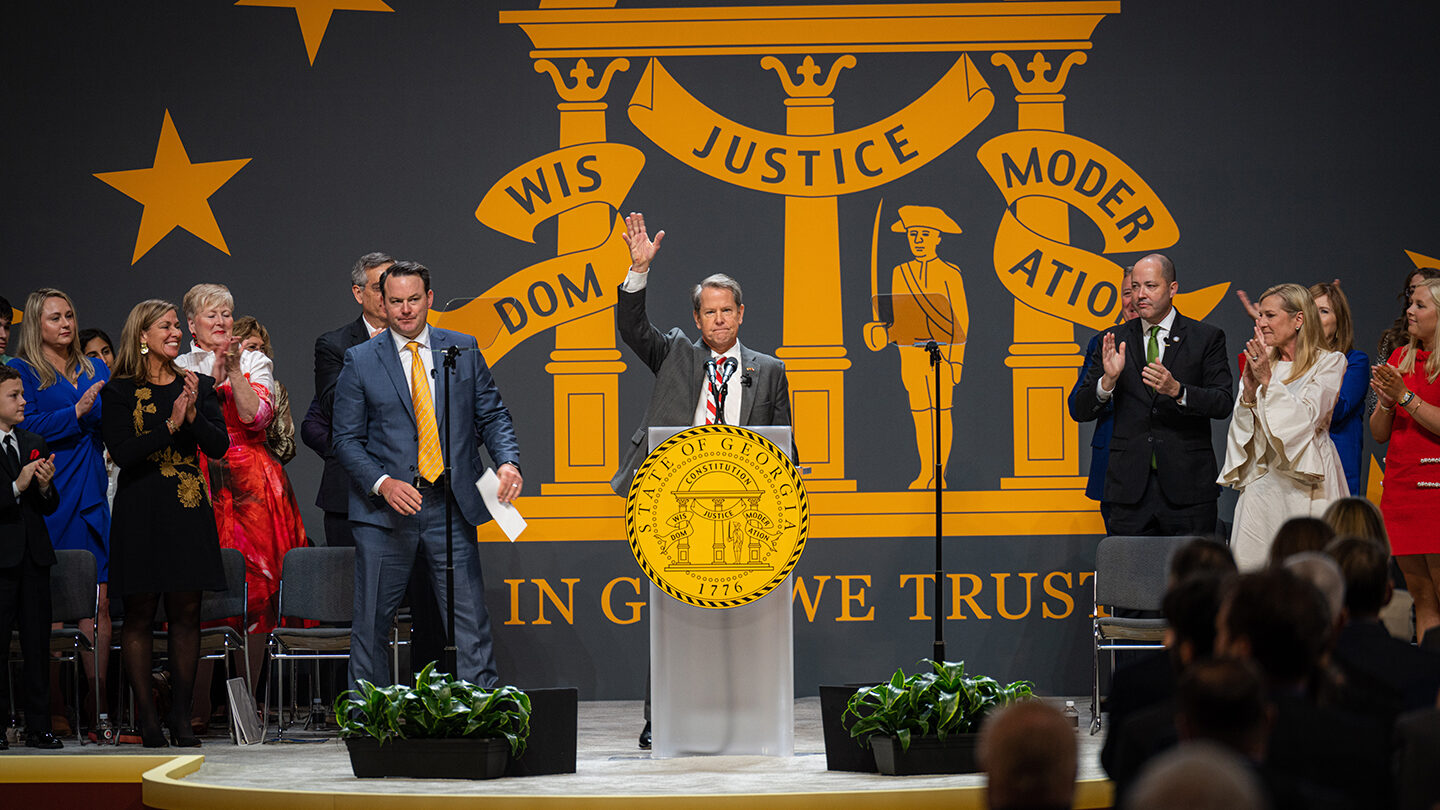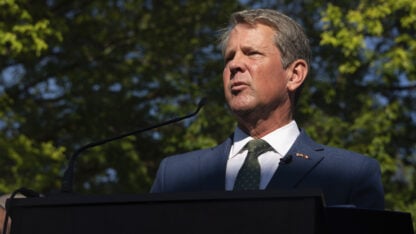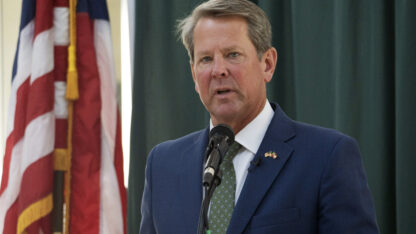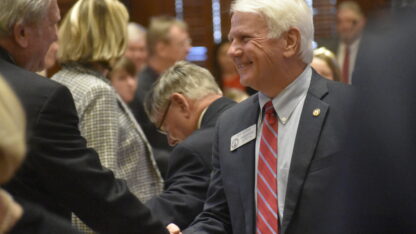With the top of the Georgia Capitol’s gold dome peeking out from the windows behind him, Republican Gov. Brian Kemp took the oath of office for a second term as the state’s 83rd governor.
“Instead of catering to the talk shows or what is popular on the cocktail circuit, this administration and the leadership of the General Assembly is going to put you and your families first,” Kemp told supporters and dignitaries inside Georgia State University’s convocation center, shortly after Georgia’s constitutional officers were each sworn in.
In a roughly 18-minute inaugural address, Kemp also announced he is calling on the legislature to pass a $2,000 raise for state employees, as well as provide $150 million in grants for school districts to address security and learning loss, as well as help paraprofessionals become certified teachers.
Kemp was sworn in with his hand on a bible open to Proverbs 16:7, a section of scripture that includes the line, “When the lord is pleased with a man and his ways, he makes even his enemies live at peace with him.”
The governor begins his second term with more political clout than ever. Last year, Kemp vanquished a Republican primary challenger backed by former President Donald Trump and then in November went on to beat one of the Democratic party’s rising stars, Stacey Abrams, by a wide margin.
Both victories turbocharged Kemp’s stock on the national stage.
Kemp’s first term was shaped by the pandemic and efforts by some fellow Republicans to overturn the 2020 presidential election. The governor rebuked Trump’s pressure to interfere with Georgia’s election result, drawing the former president’s ire and a crusade to oust him from office. Kemp later signed a sweeping election law, spurred largely by those same conspiracy theories about election fraud.
When the coronavirus pandemic tested the nation’s governors, Kemp was among the first to reopen schools and businesses, drawing praise and criticism at the time.
In the run up to his re-election campaign, Kemp pushed through a litany of conservative priorities, like restricting abortion, loosening gun laws and regulating how teachers talk about race in the classroom.
With the primary behind him, Kemp re-focused on the economy, touting an income tax refund and pay raises for teachers and state employees. Kemp has signaled those pocketbook issues are where he wants to focus as he begins his second term.
He has already promised a one-time property tax refund and another income tax refund, $250 for single filers and $500 for married couples filing jointly. On Thursday, Kemp announced his budget request will also include another pay raise for all state employees, including teachers and state law enforcement.
“The truth is, high turnover and pandemic burnout have made tough jobs even harder,” Kemp said. “From the classroom to the state patrol, if you want to keep good people in jobs critical to the safety and wellbeing of our children, our communities and our state as a whole, we must be willing to be competitive with state salaries.”
Democrats have pressed the governor to use some of the state’s surplus to fully expand Medicaid — a topic Kemp did not mention on Thursday.
Throughout his first term, the governor prioritized efforts to reel in economic development projects, including billions in investments to build new electric vehicles and the batteries they run on. During his inaugural address, Kemp declared he wants Georgia to be recognized as the “electric mobility capital of America” by the end of his second term.
Earlier this week, Kemp announced the South Korean solar manufacturer QCells is investing in a $2.5 billion expansion in Georgia. But on Wednesday, the governor told an audience of businesspeople at the annual Eggs and Issues breakfast that companies are struggling to find enough workers — and sufficient affordable housing for them.
The governor says he is requesting money in the state budget for a state and local partnership to build more “workforce” housing — and wants the state to look at local zoning rules that block some types of new housing.
“While a lot has changed and once-in-a-lifetime events have tested all of us, my commitment to the people of this state has not wavered,” Kemp said. “There may be another pandemic, another contentious election or another natural disaster, but my promise to you today remains the same as it did then. If tomorrow morning, God sends us another struggle, I will roll up my sleeves and go to work.”









